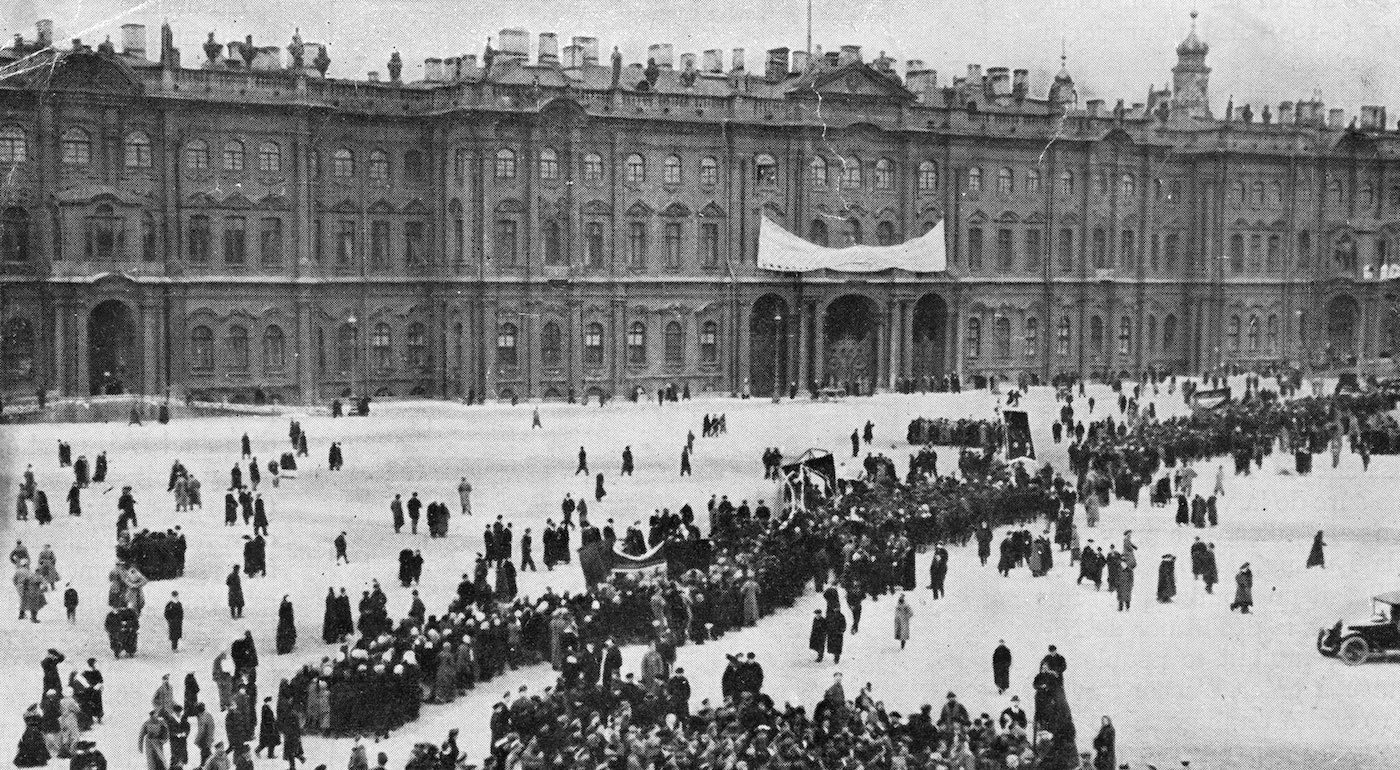
Bolshevik Revolution and the End of World War One on the Eastern Front
Bolsheviks seize power in Russia. Russian defeat in the Great War
7 November 1917 - 3 March 1918
The Bolshevik Revolution, also known as the October Revolution, took place in Russia. It was orchestrated by the Bolsheviks and their leader Vladimir Lenin. It took the form of an armed insurrection in Petrograd, Russia’s capital at that time. The Bolsheviks stormed the Petrograd Winter Palace, the seat of Alexander Kerensky’s government. The success of the revolution marked the beginning of peace negotiations with the Central Powers. For the next few years Russia was in a state of civil war as Russian loyalists, known as the White Guard, tried to resist communist rule, only to be defeated in the end.
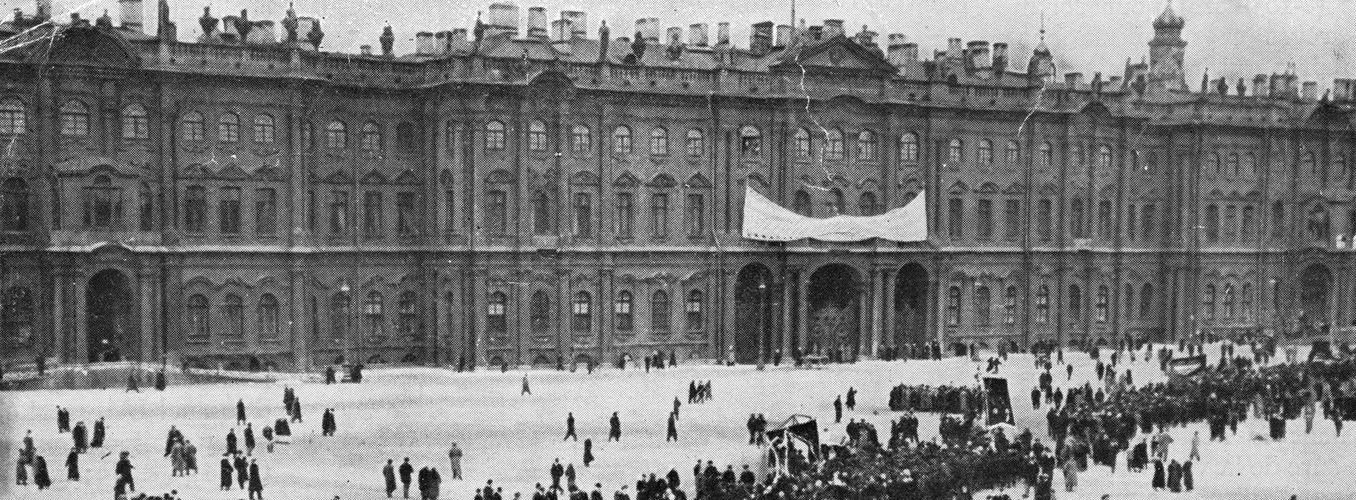
1 of 7
A small skirmish developed in the Winter Palace, where some officer cadets and a unit of female troops briefly stood off Trotsky’s forces. Armed guards escorted the remnants of the Provisional Government out of their quarters. On the whole, the vaunted October Revolution, although it would have long-lasting historical consequences, was carried off as a well-organized coup d’état within the capital city.
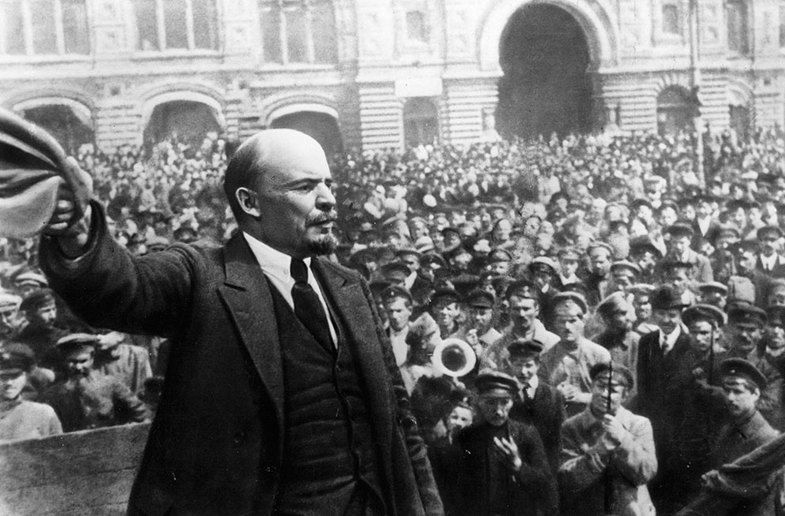
2 of 7
Although the coup took place in early November, it became known to history as the October Revolution because Russia still operated under the Julian calendar.
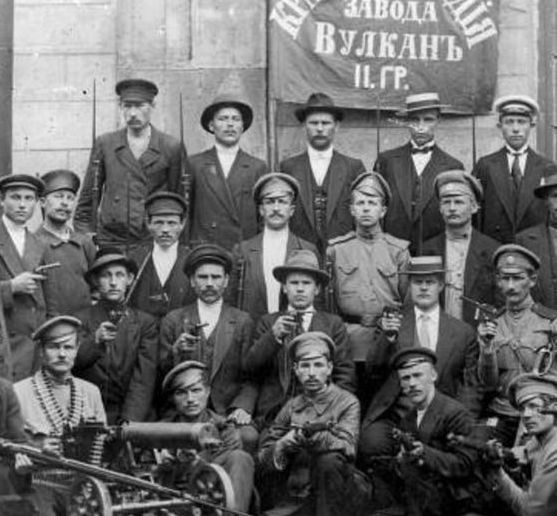
3 of 7
Very quickly, the organized Soviet armed groups took key points such as the telephone exchange, bridge crossings, railway stations, and government buildings. Lenin announced the formation of a new government, the Council of People's Commissars, whose first acts were to proclaim the ‘socialization’ of land and an appeal for peace.
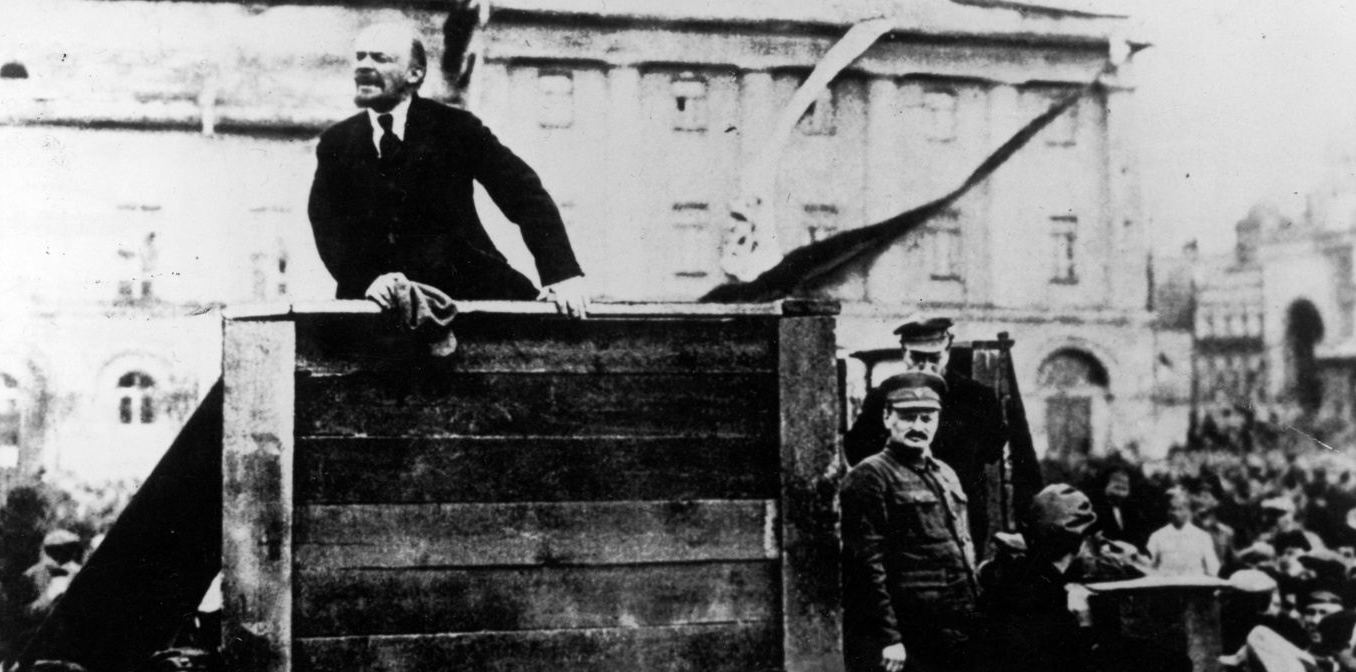
4 of 7
Unsurprisingly, the Entente governments refused to recognize the new Bolshevik government headed by the Soviet of People’s Commissars, fearing that it would make peace with the Germans. They were right to be concerned. The Germans, on the other hand, were delighted. Lenin had no choice but to deliver peace to his supporters, since this was at the heart of his mass appeal.
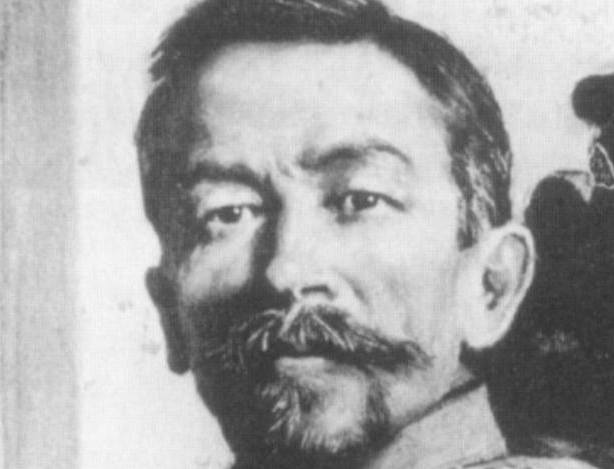
5 of 7
While peace negotiations with Germany proceeded, the Bolshevik-dominated Soviet regime, like Kerensky’s Provisional Government earlier, faced further erosion of territorial control and threats from the right. General Lavr Kornilov, together with General Alexey Kaledin, organized a counter-revolutionary force and took control of the Don River region in the south. Lithuania and Bessarabia declared their independence, and the Soviet government accepted Finland’s full national independence.
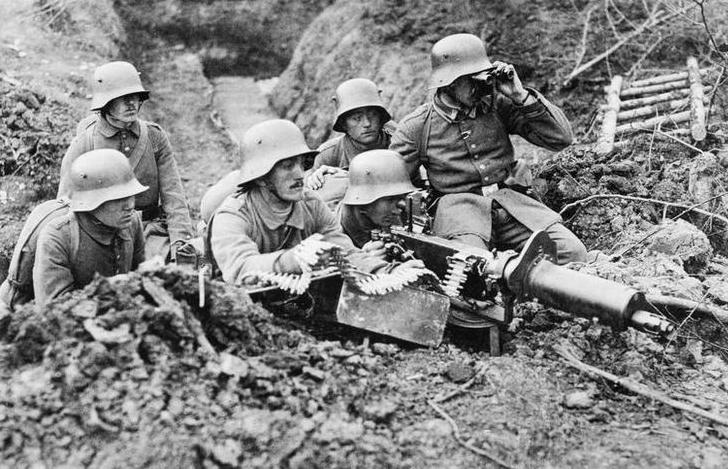
6 of 7
For the Central Powers, the collapse of Russia was an absolute triumph. At a stroke the Austrians had spare divisions to transfer to the Italian Front, where they could hope to finally defeat the Italian Army. For the Germans, victory meant that the best of their battle-hardened Eastern Front divisions could be transferred to the Western Front, where they could make one final attempt to secure victory over the French and the British.
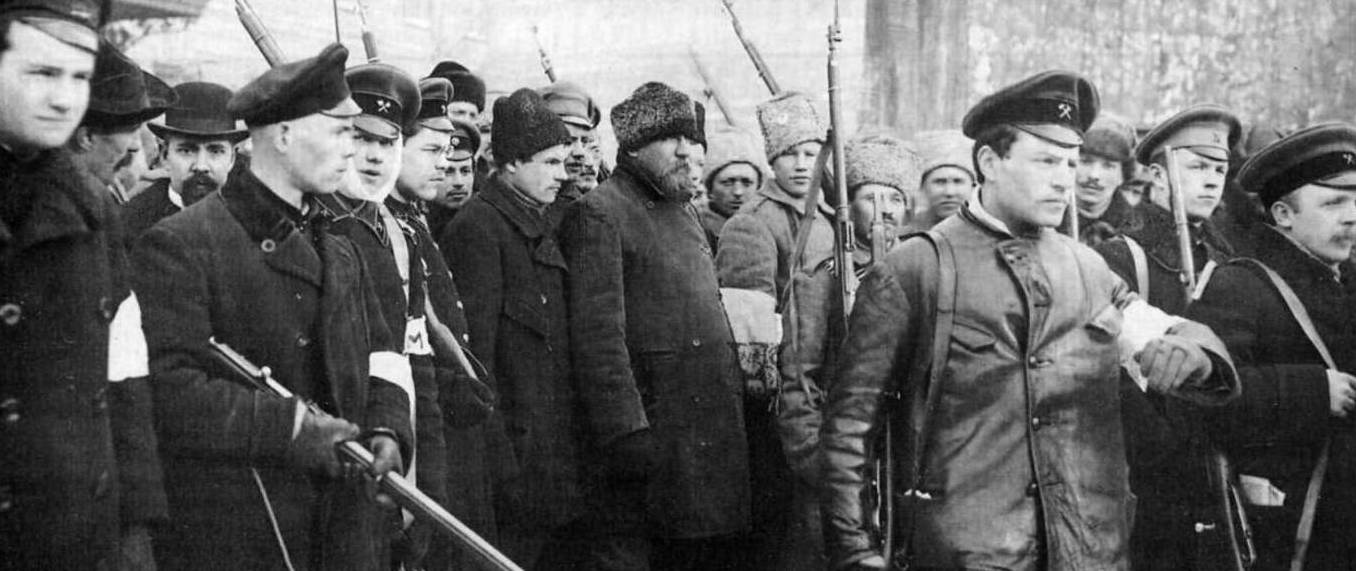
7 of 7
Despite dissent within the Soviet, counter-revolution, civil war, counter-coup, and assassination attempts, the Bolsheviks would retain control of the Russian state for the next 70 years.
The Bolsheviks organized a coup in Petrograd to seize power in the name of the Soviet. Under Lenin’s leadership, the Central Committee of the Bolshevik Party agreed to launch the revolution. Leon Trotsky spread a rumor that Kerensky planned to bring troops into the city to suppress the Soviet. Thus the Soviet, including members of the Menshevik and Social Revolutionary parties, supported Trotsky in arming factory workers. Especially important was the capture of the main bastion of revolutionary authority, the Petrograd Soviet.
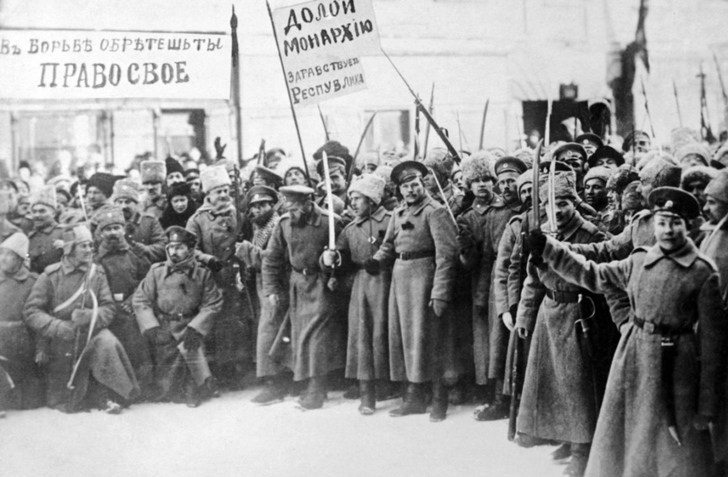
1 of 6
The Germans provided the perfect pretext for Lenin to launch his revolution. During September they enlarged their success at Riga by gaining positions in the northern Baltic from which they could directly threaten Petrograd. The Provisional Government reacted by proposing to transfer the capital to Moscow. The Bolsheviks, who represented the proposal as a counter-revolutionary move to consign the seat of the people's power to the Kaiser, won wide support for the creation of a defence committee with authority to defend Petrograd by every means.
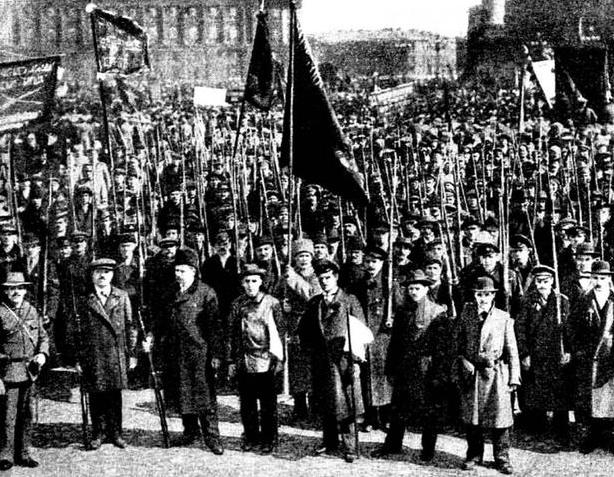
2 of 6
By now the Bolsheviks controlled their own disciplined force of Red Guards and could count on their own ability to manipulate the sentiments of the Petrograd garrison to their advantage. It merely remained to choose a date for a coup.
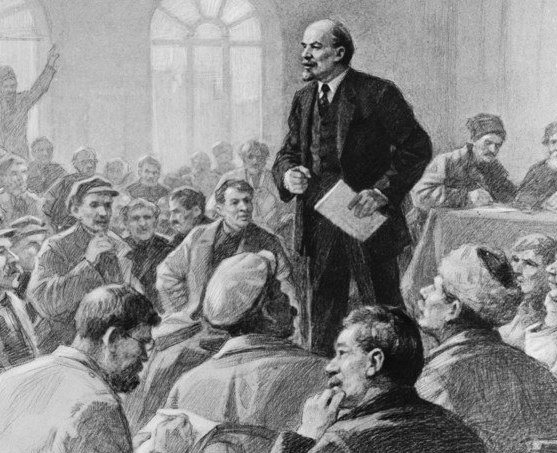
3 of 6
The Bolsheviks started in the spring of 1917 as the least influential of the three major socialist parties, but grew rapidly in size and importance. By fall they had surpassed the Mensheviks and were challenging the Socialist Revolutionary Party, or SR, in popular support; in Petrograd and many urban centers they had surpassed both parties. The reasons are complex. One was the Bolsheviks’ success in positioning themselves as the opposition to both the government and Soviet leadership.
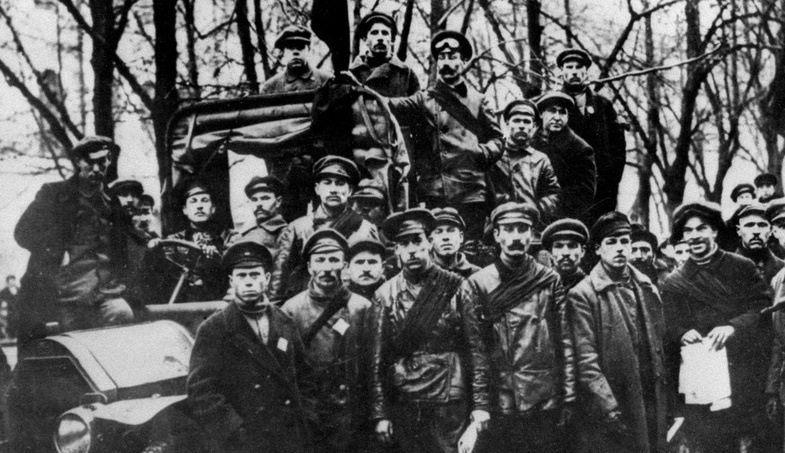
4 of 6
As the Provisional Government and revolutionary leaders failed to solve the problems of Russia and to meet the aspirations of society, the radical left prospered. The Bolsheviks in particular became the political alternative for the disappointed and disenchanted. The Bolsheviks’ appeal was not merely negative, however. They also drew support for the policies they advocated. They promised quick action on the problems facing Russia: immediate peace, rapid and complete land distribution, worker supervision in industry and various other social-economic changes.
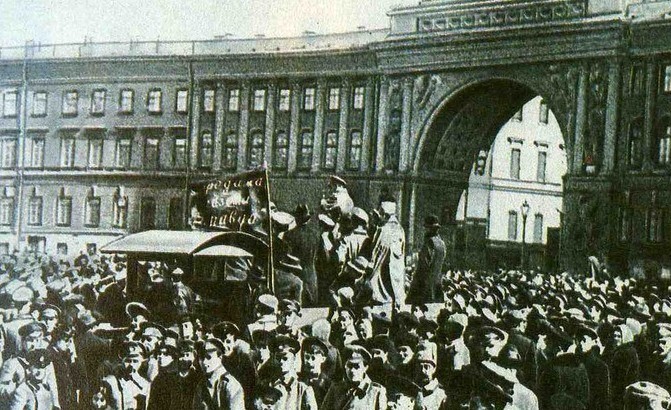
5 of 6
The Bolsheviks capitalized on the growing correspondence of their views with those of the workers and soldiers by waging an energetic propaganda campaign in the press and by orators, in which they drove home their criticism of the government and highlighted their own prescription for radical change. Their politics of sweeping change, of a revolutionary restructuring of society, aligned them with popular aspirations as the population turned toward more radical solutions to the mounting problems of Russia.
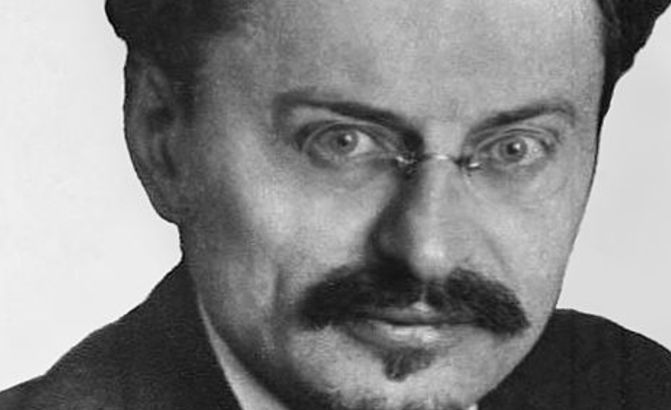
6 of 6
On the 31st of August a Bolshevik-sponsored resolution passed in the Petrograd Soviet for the first time. After that the Soviet elected a new radical left leadership. Leon Trotsky became chairman of the Soviet. The new presidium had four Bolsheviks, two SRs and one Menshevik. Simultaneously the Bolsheviks took over the Moscow Soviet of Workers’ Deputies, thereby giving them leadership of the two most important soviets. Victories in other cities accompanied this as the radical left bloc – and sometimes the Bolsheviks alone – won reelection campaigns in factories and barracks and took over control of soviet after soviet.
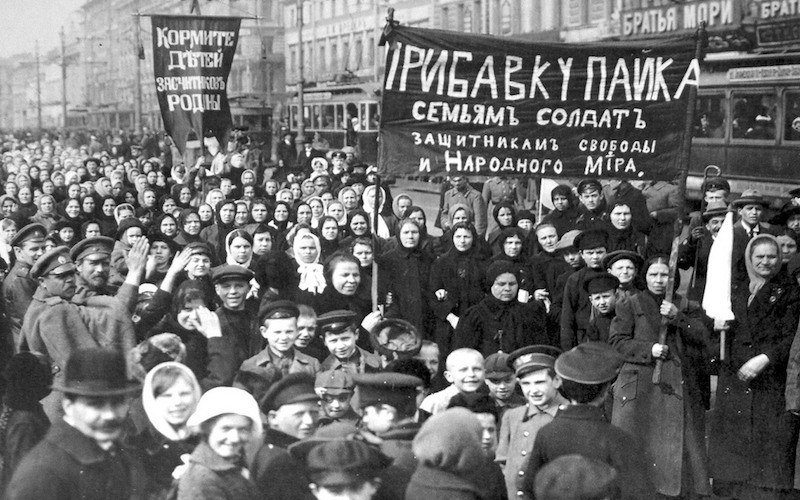
February Revolution
During the February Revolution a series of protests broke out in Petrograd, then Russia's capital, because of food shortages and the general dissatisfaction of the population regarding the Tsar's regime. A Provisional Government was established, supported by the Petrograd Soviet, at least until the Bolsheviks could organize themselves in order to seize power.
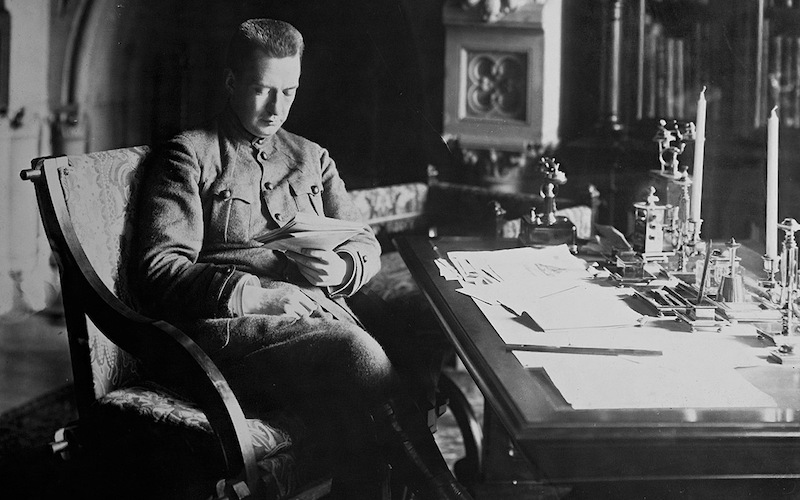
Eastern Front after the February revolution
After the February Revolution and the overthrow of the Tsar, the new Provisional Government decided to stage yet another offensive against the Central Powers.
- Peter Hart, The Great War: A Combat History of the First World War, Oxford University Press, Oxford, 2013
- Rodney P. Carlisle, World War I, Infobase Publishing, New York, 2007
- Peter Simkins, Geoffrey Jukes, Michael Hickey, Hew Strachan, The First World War: The War to End All Wars, Osprey Publishing. Oxford, 2003
- John Keegan, The First World War, Random House UK Limited, London, 1998
- Rex A. Wade, Revolutionary Russia: New Approaches, Routledge, New York, 2004





